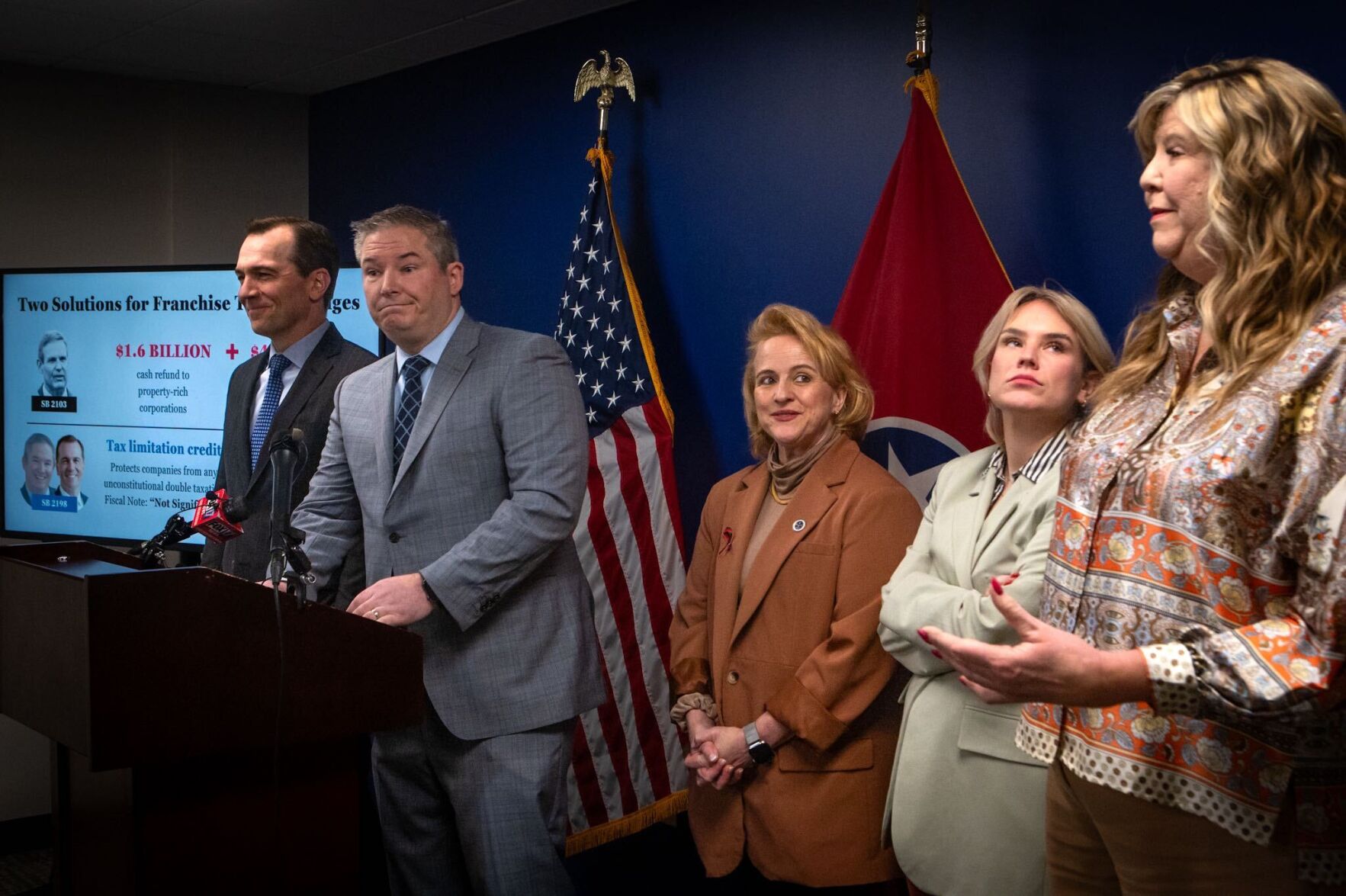Democrats have asked for transparency from Gov. Bill Lee and offered counter legislation to his administration's proposed franchise tax bill.
The Senate Finance Ways and Means Subcommittee passed the governor’s version of the bill sponsored by Senate Majority Leader Jack Johnson (R-Franklin) on Tuesday. The bill, which aims to address a potential legal issue, now moves to the full Finance Committee.
“Last fall we were approached by a handful of companies who said, ‘We don’t think you’re actually compliant,’” Johnson said addressing constituents last month.
Currently the franchise tax law is written so that a company pays taxes on either its net worth or the amount of property it owns in Tennessee, whichever is greater. This legislation would repeal the property tax portion of the franchise tax, which is estimated to bring in about $400 million annually.
Department of Revenue Commissioner David Gerregano said in a previous subcommittee meeting that taxing net worth alone is consistent with how the tax is administered in several other states. He believes Tennessee is the only state that still has the property tax measure.
Sen. Jeff Yarbro (D-Nashville) proposed during the subcommittee meeting an amendment that would change the way the bill addressed the potential legal issue of double taxation. That amendment failed to be added to the administration’s version.
“The court has suggested that the right way to solve this precise issue is to use tax credits so that no one will pay taxes twice on the same base,” says Yarbro. He tells Scene sister publication the Nashville Post his proposed legislation, which has yet to be heard in the subcommittee, addresses the same issue.
'I am worried about how we are doing something that's unprecedented in Tennessee history,' says Nashville Democrat Jeff Yarbro
Johnson previously said the revenue department did a “deep dive” with the state attorney general to determine the best way to revise the tax, which is what the administration proposed. Democrats, however, say they have also spoken with the attorney general about their proposed version.
Rep. John Ray Clemmons (D-Nashville) is carrying the Democrats' version of the legislation in the House and says it also addresses the legal concerns of the AG’s office. Clemmons added a second takeaway from the conversation with the attorney general.
“He did not own the governor's proposal at all, and in fact, went out of his way to distance himself from the actual legislative proposal being offered by the Lee administration,” Clemmons said.
Clemmons, Yarbro and other Democratic members of the General Assembly gathered for a press conference about their legislation and also called on the governor to be transparent about how he or his family could be impacted by a change to the franchise tax.
On March 7, Clemmons and Sen. London Lamar (D-Memphis) delivered a letter to Lee requesting that the governor “release publicly the last four annual Franchise and Excise Tax Returns with the Tennessee Department of Revenue by the Lee Company” as well as those of any other businesses in the state in which Lee or his wife, first lady Maria Lee, have a controlling interest.
“Our request is grounded in the belief that Tennesseans deserve to understand whether their governor stands to financially benefit from tax policies included in the Administration’s budget recommendation,” the letter reads in part.
Lee’s press secretary told the Post in response to the letter: “It is widely known that, prior to taking office in January 2019, the Governor stepped down from his position at Lee Company and chose to place his holdings in a blind trust to eliminate any potential conflicts of interest. As such, Tennessee law is clear that he is prohibited from accessing Lee Company tax records, and he has no awareness of the company’s operations or business decisions.”
Yarbro questioned the transparency of the response.
“We’re talking about a family business that’s been in the governor’s family for decades and has probably paid on the same tax measure that entire time," says Yarbro. "I think there’s obviously more information the governor could give than the stiff-arm that he has given the media.”
The administration’s version of the legislation would establish a fund for reimbursements for any taxpayers who overpaid based on property over the past three years.
An amendment was added in the subcommittee that specifies taxes eligible for a refund must be reported by May 1, 2024, through Feb. 3, 2025. The Department of Revenue would set aside $1.5 billion for those refunds. That number is based on the department’s estimate of all who filed in the eligible tax years.
This article was first published by our sister publication, the Nashville Post.






